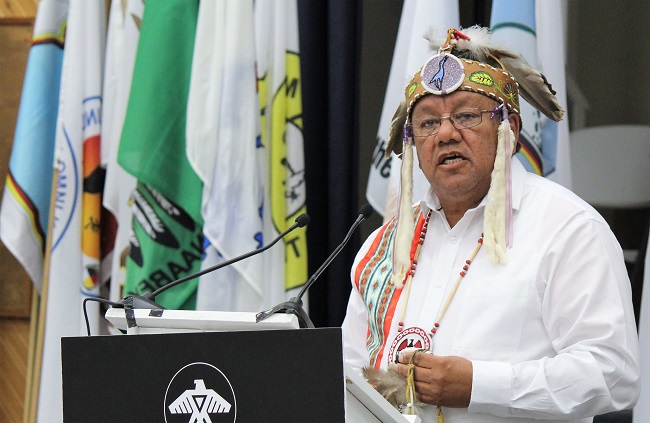Shooting of Chantel Moore ‘senseless’ says Grand Council Chief

ANISHINABEK NATION HEAD OFFICE (June 5, 2020) – Anishinabek Nation Grand Council Chief Glen Hare says he is appalled to hear about the shooting death of Tla-o-qui-aht First Nation member Chantel Moore by a police officer in Edmundston, New Brunswick.
“There is a long-standing history of racism and violence towards First Nations and Indigenous peoples at the hand of people in positions of authority in this country. Why does this continue to happen to our people?” asked Grand Council Chief Glen Hare. “This is a sad day for all of our Indigenous women, men and children in this country. This is a senseless death that I hope is investigated further. There are ways to diffuse a situation without shooting a gun to kill.”
Hare also says that he is concerned about the incident earlier this week in Kinngait (Cape Dorset) in Nunavut.
“Caught on video, a Nunavut RCMP officer is seen striking a man with a police truck. He just opens the door and rams into him. Something isn’t right here. This has got to stop. Why are we using police vehicles to run over people?”
“Racism is here and has been for more than 200 years. It is prevalent in all minorities and people of colour. It lives and breathes in Canada. We call on all federal and provincial leaders to go beyond acknowledging and apologizing for racism and put a plan in place to address the systemic issue that we as Indigenous Peoples, and any person of colour, are far too familiar with. Racism was the building block for policies that are still in place to this day in Canada. We call on all occupants of Mother Earth to stand with us in our fight to protect our communities, families, men, women, and children and create a world where a person of colour doesn’t have to worry about their life simply for being born in the skin that they’re in. We all have a responsibility to take action.”
The CBC set out to compile a database of every person who died or was killed during a police intervention from 2000 to the end of 2017. Researchers gathered information on race and ethnicity from a variety of sources and found Black and Indigenous people were severely overrepresented. In April of this year in Winnipeg, three Indigenous people were killed in the span of ten days.
June is Indigenous History Month, a time to celebrate and honour the history, heritage and diversity of Indigenous Peoples. This is an opportunity to learn about Treaties, Residential Schools, and to recognize the strength and resiliency of Indigenous Peoples and communities.
Relevant Links:

